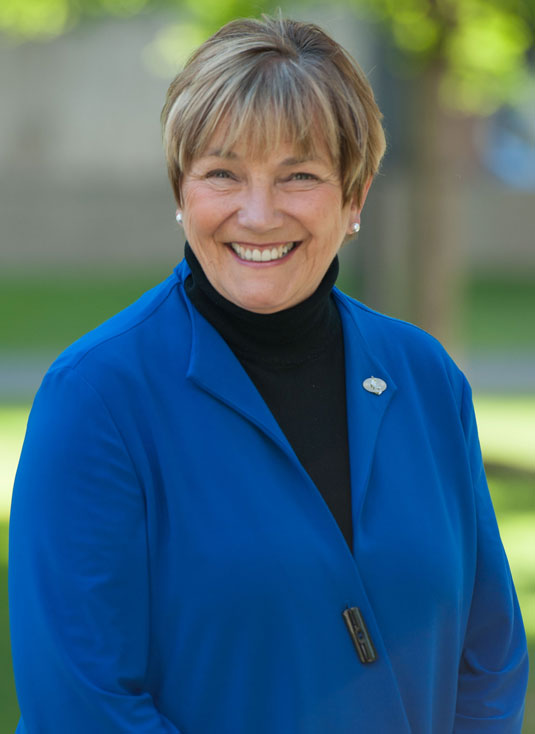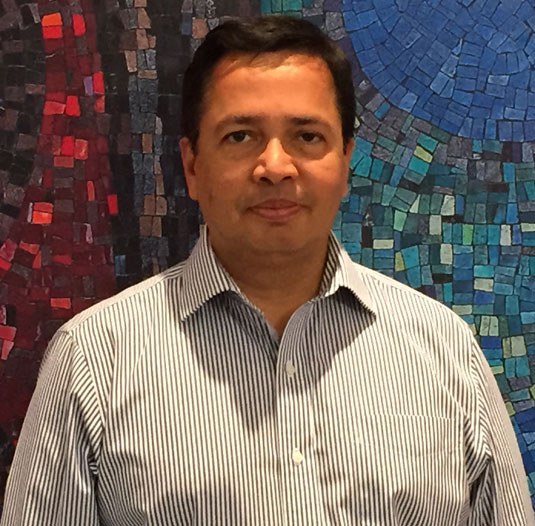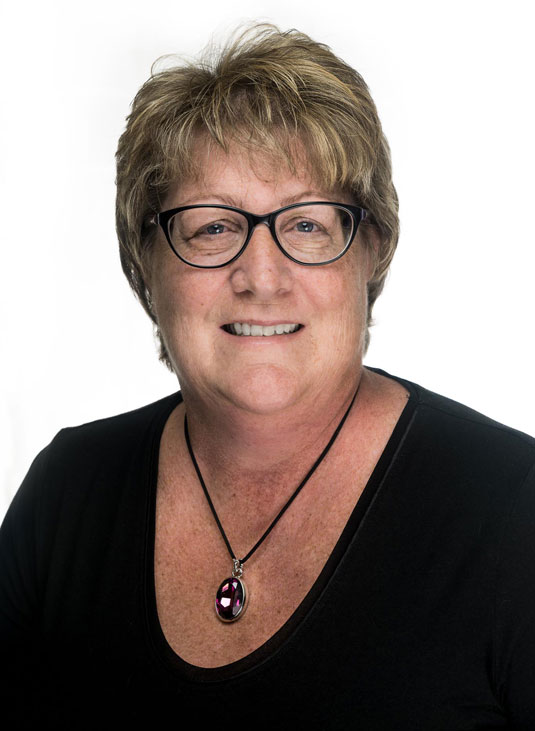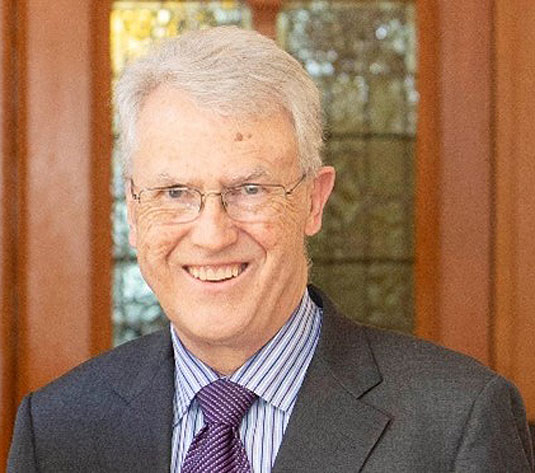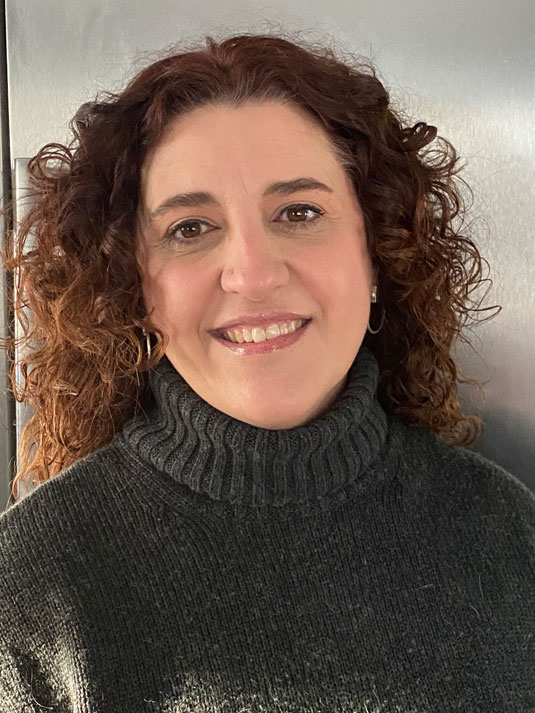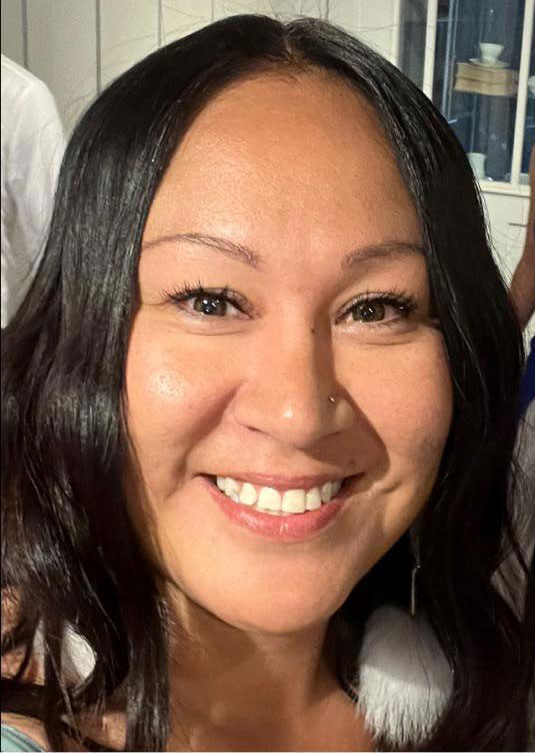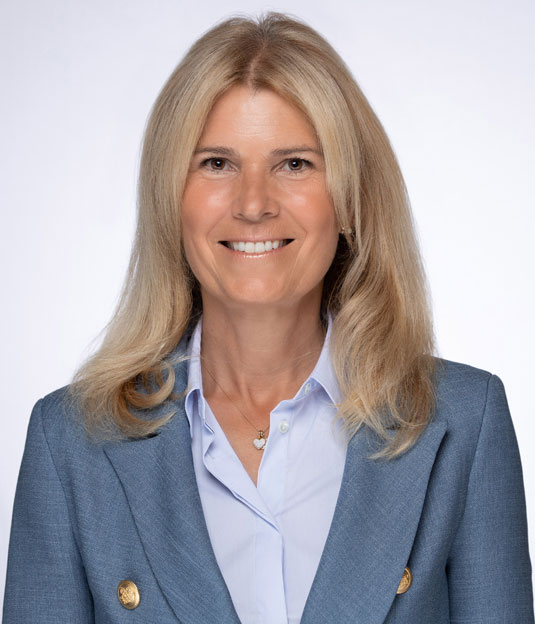Summary of expertise and experience – Members of the Ministerial Advisory Board on Dementia
Members of External Advisory Bodies (EABs) must disclose information about expertise, experience, and affiliations and interests relevant to the group's mandate as declared by members. The Public Health Agency of Canada (PHAC) considers these declarations as part of the appointment/membership process.
Advisory Board Biographies
Barb Shellian, Chair
Barb Shellian was first appointed as a member of the board in May 2018. She was re-appointed as co-chair in 2023.
As a registered nurse, Shellian is committed to nursing practice and health care reform. She is a graduate of the Foothills Hospital School of Nursing and earned her Bachelor and Masters degrees from the University of Calgary.
Shellian is the director of rural health, Calgary zone, for Alberta Health Services and has extensive experience as a staff nurse, educator, manager and clinical nurse specialist. She is also an adjunct assistant professor for the University of Calgary's Faculty of Nursing.
Shellian has presented many papers on clinical and professional issues across Alberta and at national and international conferences. She has been instrumental in establishing a national association for rural and remote nurses and was elected as the first president of the Canadian Association of Rural and Remote Nurses.
She has received several awards, including:
- the Calgary Health Region Peoplefirst Award in recognition of selfless endeavours
- the Spirit of Planetree Award in recognition of Patient Family Centered Care
- the Queen Elizabeth II Diamond Jubilee Medal and the Queen Elizabeth Platinum Jubilee Medal in recognition of her contribution to Canada and nursing
- the Lifetime Achievement Award from the College of Registered Nurses of Alberta
- the SPARK award from the University of Calgary Faculty of Nursing for community enhancement by an alumnae
Shellian served as the president of the Canadian Nurses Association from 2016 to 2018. She is currently the editor-in-chief of the Canadian Nurse journal.
Dr. Sylvie Belleville
Sylvie Belleville is a full professor at the University of Montreal's Psychology Department and the Laboratory Director for the Institut Universitaire de Gériatrie de Montréal (CRIUGM).
Belleville is recognized for her work on cognitive training for older adults and persons with mild cognitive impairment and on the prevention of age-related cognitive decline. She identified processes of compensation and plasticity in aging using brain imaging techniques.
She also developed an important research program on the neuropsychology of aging and dementia. Belleville has contributed to a better understanding of the neuropsychological deficits found in persons with very early signs of Alzheimer's disease and mild cognitive impairment. Belleville developed a cohort of well-characterized older adults with suspected prodromal Alzheimer's disease.
She has published 268 peer-reviewed articles and holds a Tier 1 Canada Research Chair on the Cognitive Neuroscience of Aging and Brain Plasticity. She was co-president of the advisory board for the Canadian Institute of Health Research Institute of Aging and Director of the CRIUGM.
Belleville established and leads the Consortium for the Early Identification of Alzheimer’s Disease and the national "Cognitive Intervention, Cognitive Reserve and Brain Plasticity" and "Brain Health Support Program" for the Canadian Consortium on Neurodegeneration in Aging. Belleville is currently the Director of the Quebec Network for Research on Aging.
She has received many prizes in recognition of her work including:
- the ACFAS Léo-Pariseau prize
- the Brenda-Milner prize of the Neuropsychologists Association of Quebec
- the Adrien Pinard Prize of the Quebec Psychology Research Society
- the Professional Prize of the Quebec Psychologist Association
- an honoris causa doctorate from Mons University
- member of the Canadian Academy of Health Sciences
- the 2023 Women of Distinction Awards in Research and Innovation of the Women's Y Foundation of Montreal.
Dr. Habib Chaudhury
Habib Chaudhury is chair and professor in the Department of Gerontology at Simon Fraser University. He is also the associate director of the Gerontology Research Centre at Simon Fraser University.
Chaudhury has extensive research experience in the field of Environmental Gerontology, specifically in the following areas:
- supportive physical environment of long-term care facilities for people with dementia
- dementia-friendly neighbourhood environment
- age-friendly communities; community planning and urban design for active aging
His research projects have been funded by the Public Health Agency of Canada, Canadian Institute of Health Research (CIHR), Social Science and Humanities Research Council, Canada Mortgage and Housing Corporation, CapitalCare Foundation and the Centre for Health Design.
He has published extensively through peer-reviewed journal articles, book chapters and books. Published books include:
- Environments in an Aging Society: Autobiographical Perspectives in Environmental Gerontology (Annual Review of Gerontology and Geriatrics, Vol 38, 2018; co-edited with F. Oswald)
- Remembering Home: Rediscovering the Self in Dementia (Johns Hopkins University Press, 2008)
- Home and Identity in Later Life: International Perspectives (Springer Publications, 2005; co-edited with G. Rowles)
Chaudhury provides evidence-based consulting with national and international organizations in the areas of planning and design of seniors' housing and long-term care facilities. He is also affiliated with the Centre for Research on Personhood in Dementia at the University of British Columbia. He serves as the editor-in-chief of the Journal of Aging and Environment and on the CIHR Institute of Aging advisory board.
Dr. Pamela Jarrett
Pamela Jarrett is a geriatrician with Horizon Health Network in Saint John, New Brunswick (N.B.), and an associate professor of medicine at Dalhousie University.
Jarrett is a graduate of the University of New Brunswick and Dalhousie Medical School. She holds certifications from the Royal College of Physicians and Surgeons of Canada in both internal medicine and geriatric medicine.
Throughout her career she has cared for many older adults with dementia in their homes, hospital, and residential care facilities. She was Clinical Department Head of Geriatric Medicine in Saint John, N.B., and worked with the Department of Health in New Brunswick as a medical consultant.
Jarrett has been involved in the teaching of medical students, and medical residents and allied health professionals about the care of older adults. She has also been a clinical researcher and is currently a member of Canadian Consortium of Neurodegeneration in Aging.
Some of her research interests include:
- prevention and management of dementia
- falls in older hospitalized adults
- transitions in care from hospital for older adults
- frailty in older adults
She holds a clinical research scholarship from Research New Brunswick. Jarrett is a principal or co-principal investigator on several research projects currently funded by the Healthy Seniors Pilot Project in New Brunswick.
She was recently awarded the Lieutenant Governor's Excellence in Aging Award for New Brunswick.
Jim Mann
Jim Mann is a retired executive and entrepreneur, a volunteer, a researcher, and a dementia advocate. From 1994 to 2008, Mann ran his own consulting firm, Capital Business Strategies, following a 25-year executive career with Canadian Airlines (formally Canadian Pacific Air Lines). In February 2007, at the age of 58, Mann was diagnosed with early onset Alzheimer's disease.
During his time as a board member for the Alzheimer Society of Canada (ASC) and Alzheimer Society of British Columbia (B.C.), Mann co-chaired the ASC's Advisory Group of People Living with Dementia as they developed both an ethical framework and a guide for meaningfully engaging people living with dementia, as well as the Canadian Charter of Rights for People with Dementia.
Mann is an active member of several groups and initiatives, including:
- Research Ethics B.C.
- Institute of Aging of the Canadian Institutes of Health Research (CIHR)
- The Alzheimer Society of B.C.
- AgeTech, Early Professionals, Inspired Careers in AgeTech: IUnnovators of Tomorrow Health Research Training Platform (EPIC-AT)
- The Helen Carswell Research Chair in Dementia Care
- The World Health Organization's Global Dementia Observatory Focus Group
He is the recipient of many awards, including:
- Honorary Doctor of Laws degree from the University of British Columbia (2020) for being "the single-most influential person in Canada for reducing the stigma of Alzheimer's disease"
- the Queen Elizabeth II Diamond Jubilee Medal
- the Governor General's Medal for Volunteers
- the Change-Maker Award from the Neurological Health Charities of Canada
- the Dementia Friendly Voice Award
- the Clyde and Lanny Slade Leadership Award
- the Youth Parliament of B.C. Alumni Society Award for Outstanding Leadership
- the Kenneth G. Murray Partnership in Dementia Award from the Murray Alzheimer Research and Education Program
Mann is a researcher and author and is currently co-investigator of a CIHR-funded project focused on robotic-assisted virtual care for older people with dementia, and collaborator of Consent and substitute consent to participate in research: Ethics and legal practice for the meaningful inclusion of Canadians living with dementia.
Erica Matthews
Erica Matthews is a medical social worker with the Saskatchewan Health Authority (SHA). She has extensive experience working with people living with dementia and their care partners, primarily in a rural setting.
As an assistant professor with the Faculty of Medicine at the University of Saskatchewan, Matthews teaches the Behavioural Medicine curriculum with the Family Medicine Residency program. She has worked in partnership with the Rural Dementia Action Research (RaDAR) team from the University of Saskatchewan for many years.
She currently chairs the committee which supports the collaboration between the SHA and the RaDAR team with the focus of increasing accessible and informed dementia care in rural settings.
Matthews has volunteered with the Alzheimer Society of Saskatchewan for many years, facilitating a support group for people living with dementia and their care partners.
Jennifer Picek
Jennifer Picek is a registered nurse and is currently the health systems navigator for the Inuvialuit Regional Corporation. She was previously the regional manager of continuing care for the Northwest Territories Health and Social Services Authority, Beaufort Delta Region. Prior to that, Picek was a public health and home care registered nurse, and an acute care registered nurse.
Through these roles, she developed a passion for patient advocacy and seeks to create positive change for all people, including people living with dementia.
As a registered nurse, Picek has experience providing care for people living with dementia in a long-term care unit as well as living in their own homes with the support of family.
As a resident of the Canadian North, she is aware of the challenges and limitations people face daily because of the remote locations of their homes as well as the limited resources readily available in the North.
As an Inuvialuit and Gwich'in person living in the North, Picek understands that there is a need for culturally relevant resources available for people living with dementia, their families, and their caregivers.
Dr. Luca Pisterzi
Luca Pisterzi is an Adjunct Lecturer at the University of Toronto, and has over 10 years of experience working in brain health research. Most recently, he was the Vice President of Research, Programs & Evidence at the Alzheimer Society of Canada.
He holds a PhD in biophysics and molecular pharmacology from the Leslie L. Dan Faculty of Pharmacy at the University of Toronto, and has completed a Global Executive MBA in Healthcare and the Life Sciences at the Rotman School of Management, at the University of Toronto.
Luca has expertise in:
- Pharmacological research in dementia
- Multi-site clinical research at the national, provincial, and local level, with a focus on risk factors for dementia, disease trajectory, markers of dementia, and potential treatments
- Data sharing, research ethics and privacy
- Designing, building, and implementing infrastructure that has made research more efficient and accessible
Luca co-led a dementia research alliance that included six hospitals across Toronto and the University of Toronto that focused on embedding research into care. He is actively seeking to implement standards of care that will help health systems across Canada better support people living with dementia, and enable earlier diagnoses. Luca actively collaborates with researchers in dementia on clinical trials, and is supporting the translation of robust cognitive tests in different languages.
He serves as a board member on the Canadian Conference on Dementia, and sits on dementia strategy steering committees for the Sunnybrook Health Sciences Centre and Bruyère Health.
Dr. Samir K. Sinha
Samir Sinha was first appointed as a member of the Ministerial Advisory Board on Dementia in May 2018. He was re-appointed in 2023.
Sinha is the director of geriatrics for Sinai Health and the University Health Network, alongside serving as the Director of Health Policy Research at the National Institute on Ageing. In 2021, Sinha was appointed as a member of the Government of Canada's National Seniors Council.
Beyond his administrative roles, Sinha is a respected educator, holding professorial positions at the University of Toronto across various departments, including Geriatric Medicine, Family and Community Medicine, and Health Policy, Management, and Evaluation. Additionally, he serves as an Adjunct Professor of medicine at the Johns Hopkins University School of Medicine, further extending his academic influence.
Sinha assumed the Chairmanship of the Technical Committee tasked with developing the Health Standard Organization's new National Long-Term Care Services Standard for Canada, that culminated in the release of finalized standards in early 2023.
After completing medical school at Western University, he obtained a master's degree in medical history and a doctorate in sociology from the University of Oxford's Institute of Ageing as a Rhodes Scholar. He completed postgraduate training in internal medicine at the University of Toronto, followed by a prestigious fellowship at the Johns Hopkins University School of Medicine in clinical geriatrics, education and leadership.
Sinha is a fellow of the American Geriatrics Society and has provided consultancy to healthcare institutions across Canada, Britain, China, Iceland, Saint Kitts and Nevis, Singapore, and the United States.
Claire Webster
Claire Webster is a certified dementia care consultant, certified professional consultant on aging, as well as a conference speaker and educator in the field of caring for an individual with dementia.
She is founder and president of Caregiver Crosswalk, a consulting firm that provides education and support services to help individuals navigate the journey of Alzheimer's disease or dementia-related illnesses.
As a former caregiver to her late mother who had Alzheimer's disease, Webster has had first-hand experience about the impact that dementia has on the person as well as the ripple effect on family members.
Webster works in collaboration with McGill University's Faculty of Medicine and Health Sciences, and the Division of Geriatric Medicine. She is the founder and ambassador of McGill University's Dementia Education Program which publishes the Dementia Companion Guide, and McGill Cares; a webcast series designed to support family care partners.
Webster is a McGill senior co-author of two Alzheimer's Disease International world reports:
- 2021's report, A journey through the diagnosis of dementia
- 2022's report, Life after diagnosis: Navigating treatment, care and support.
